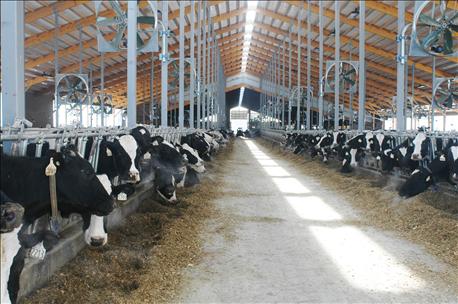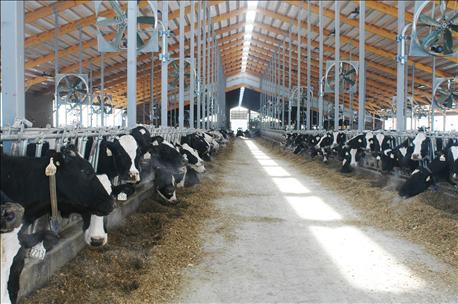
Leaders of several national farm organizations recently joined together to urge food companies to recognize that their sustainability goals, intended to reduce the use of natural resources, cannot be achieved without modern farming practices, despite misleading information to the contrary.
The farm groups' focus on deceptive food company marketing claims is in response to Dannon’s pledge to eliminate the use of genetically modified corn to feed the dairy cows that supply milk for its yogurt products.

MORE MILK: Advances in agricultural technologies have helped U.S. farmers create an abundance of healthy and wholesome food to feed our nation and help feed the world.
Dannon is one of several food companies that in recent years has taken steps to eliminate GMOs and other technologies like the bovine somatotropin hormone and antibiotics from its supply, claiming that such a move improves the sustainability of its products — which is just plain hogwash. Food companies and restaurants are doing this to make their food seem more wholesome than it is, and to give a certain segment of their clientele a warm, fuzzy feeling about buying their food.
In the letter sent to Mariano Lozano, head of Dannon’s U.S. operations, the farm groups said that the company’s strategy to eliminate GMOs “is the exact opposite of the sustainable agriculture that you claim to be seeking. Your pledge would force farmers to abandon safe, sustainable farming practices that have enhanced farm productivity over the last 20 years while greatly reducing the carbon footprint of American agriculture.”
“This is just marketing puffery, not any true innovation that improves the actual product offered to consumers,” says Randy Mooney, chairman of the National Milk Producers Federation and a dairy farmer from Rogersville, Mo. “What’s worse is that removing GMOs from the equation is harmful to the environment — the opposite of what these companies claim to be attempting to achieve.”
The letter was cosigned by the farmer-leaders of the American Farm Bureau Federation, American Soybean Association, American Sugarbeet Growers Association, National Corn Growers Association, National Milk Producers Federation and U.S. Farmers and Ranchers Alliance. Collectively, the six organizations represent hundreds of thousands of farmers and food producers across the U.S.
The groups agree that biotechnology plays an important role in reducing the environmental footprint of agriculture and challenged the assertion that sustainability is enhanced by stopping the use of GMO processes. During the last 20 years, advancements in ag technology have allowed farmers to use less pesticides and herbicides, fossil fuels, and water, which prevents soil erosion.
"Taking away GMOs is like to turning back the clock and using outdated 20th century technology to run a business," the farm groups said.
I couldn't agree more.
“Farming organizations are standing up for the technology that supports continuous improvement in farm sustainability. Farmers and ranchers have grown GMO crops over the past 20 years precisely because biotechnology helps farmers preserve resources for the future,” says Nancy Kavazanjian, a crop farmer from Beaver Dam and chairwoman of the U.S. Farmers and Ranchers Alliance. “When food companies are making sourcing decisions, farm groups encourage them to recognize that modern, conventional agriculture is sustainable.”
Numerous studies have come out over the past 20 years proving the safety of GMO food and the environmental benefits of growing GMO crops. Most recently, 109 Nobel laureates announced their support of GMO technology, citing a study from the National Academies of Sciences, Engineering and Medicine that says, “The study committee found no substantiated evidence of a difference in risks to human health between current commercially available genetically engineered (GE) crops and conventionally bred crops, nor did it ?nd conclusive cause-and-effect evidence of environmental problems from the GE crops.”
“Despite overwhelming evidence supporting the safety of GMO crops and their benefits to the environment, marketers of some major food brands, such as Dannon, have aligned themselves against biotechnology,” says Wesley Spurlock, president of the National Corn Growers Association. “Farming organizations believe in open and honest communication with consumers, and allowing people to make informed choices in the market. But we cannot sit by while certain food companies spread misinformation under the guise of a marketing campaign.”
I believe farmers and the farm organizations that represent them need to continue to fight against companies like Dannon that deliberately mislead consumers. But I think it's time they take it a step further and, with the financial backing of ag companies like Monsanto, which created and sells these technologies, to start a campaign to educate consumers. Tell your story and buy ads that set the record straight with consumers, explaining that advances in agricultural technologies have helped U.S. farmers create an abundance of healthy and wholesome food to feed our nation and help feed the world.
About the Author(s)
You May Also Like






